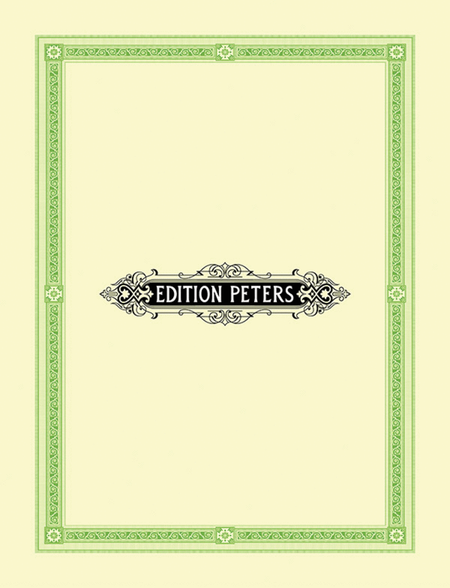Haroun and the Sea of Stories
An Opera in Two Acts Based on the Novel by Salman Rushdie
-
Ships in 1 to 2 weeks
Details
Description
SKU: PE.EP67890
An Opera in Two Acts Based on the Novel by Salman Rushdie. Composed by Charles Wuorinen. Full Orchestra; Single Titles. Edition Peters. 20th Century. Full score. 782 pages. Duration 02:00:00. Edition Peters #98-EP67890. Published by Edition Peters (PE.EP67890).ISBN 9790300747613. 297 x 420mm inches. English.
Libretto by James Fenton
"In a make-believe world, based loosely on Bombay and Kashmir, the story of Haroun is a tale of a fight between the free imagination and the powers that oppose it. Haroun's father, Rashid, the Shah of Blah, is a professional and gifted story-teller, a popular figure much in demand at public events. Feeling neglected, his wife is persuaded to leave him and run away with a neighbor. After this, Rashid loses confidence in his powers of story-tellling, haunted by his son's question: 'What's the use of stories that aren't even there?' Rashid is due to speak at a political rally to be held by the sinister politician, Snooty Buttoo. He is told that if he does not come up with his usual fund of tales, his tongue will be cut out. As Rashid despairs, Haroun determines to rescue his father's talent - a project in which he learns that the Ocean of the Sea of Stories, the source of all stories, is being polluted by the enemy of all stories, the evil Khattam Shud. In a series of brilliant imagined adventures, Haroun succeeds in defeating the powers of darkness, and restoring happiness to his family, and to the city where he lives.
Salman Ruishdie's children's book, written in the aftermath of the fatwa, has an effervescent style which is full of rhymes and wordplay. The libretto stays very close to the spirit of the original, conjuring up a fantasy world in which, nonetheless, one never loses sight of harsh political reality and the great issues of freedom of speech and imagination." -- James Fenton, 1998

 Share
Share